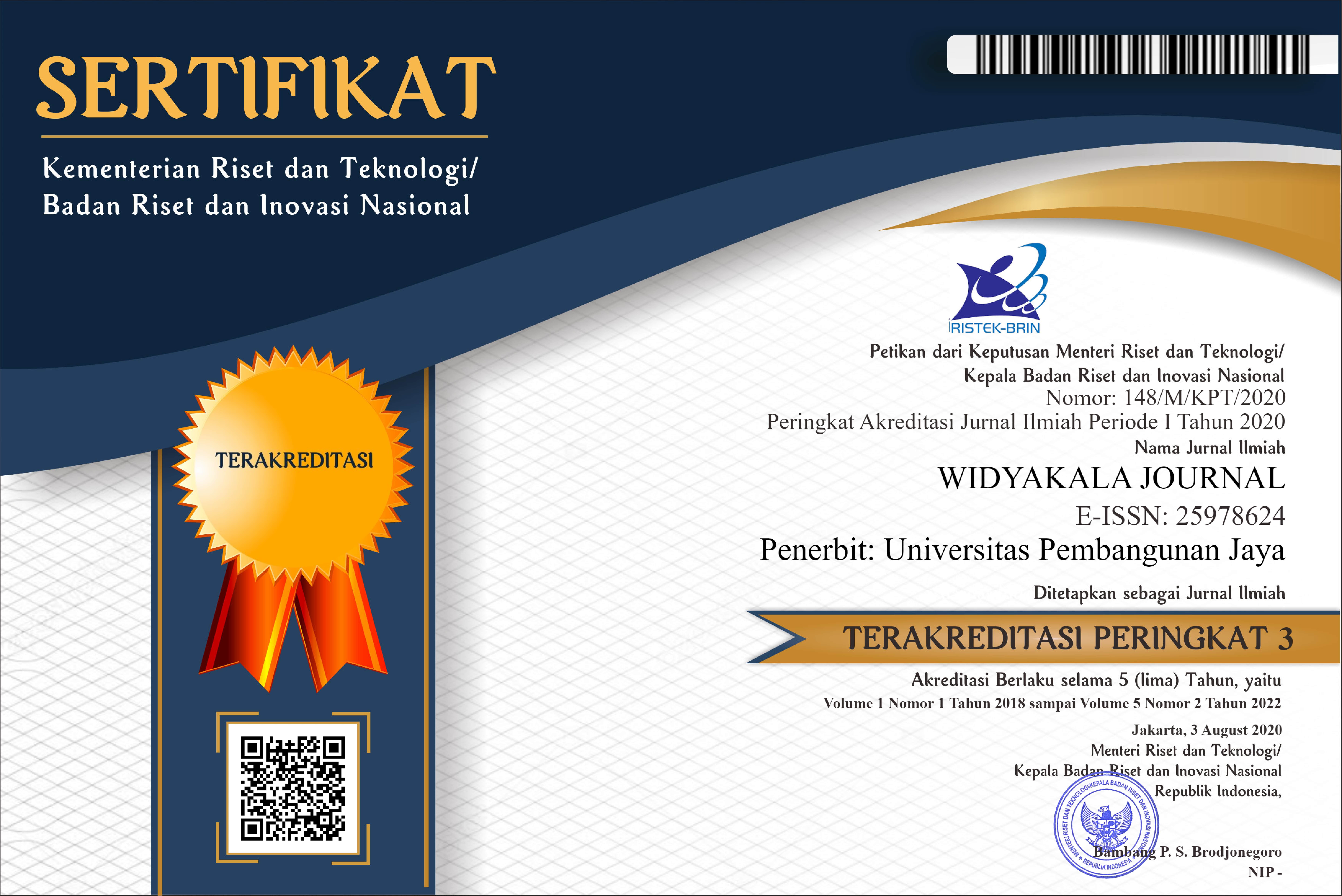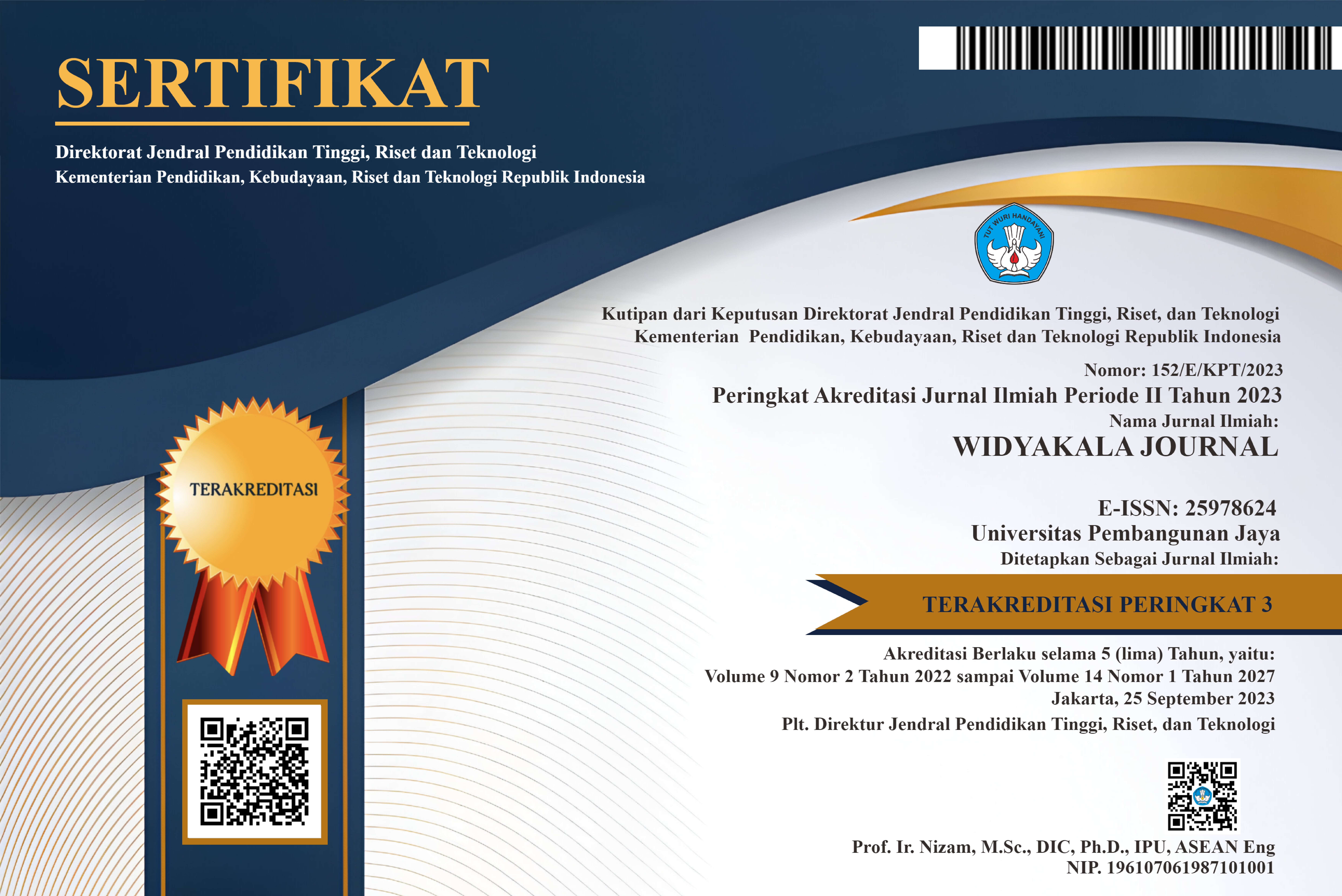Updated, March 2025
Transformational Leadership of Pucangsewu Village Head in Developing Sustainable Environmental Innovation
Abstract
Environmental problems in Indonesia are increasingly disturbing with the varying amount of daily consumption of the community. Household waste is a serious problem in every region in Indonesia, including at the regional level. Innovation is needed in public services in the environmental sector to handle this case. Pucangsewu Village, Pacitan District, Pacitan Regency has designed a Recycling Center to process the waste of the Pucangsewu Village community. The purpose of this study will discuss a leader in the process of developing a local Recycling Center as a solution to the waste problem in the village. The theory used is Kharis' Transformational Leadership Theory (2015). This study uses a descriptive qualitative approach with an interview method. Researchers conducted interviews with actors who have roles in the innovation. The results of this study are that in its journey to develop the Pucangsewu Recycling Center, it experienced major obstacles, namely human resources who still do not know how to dispose of waste properly and in the process of sorting organic and inorganic waste. The impact of this study will provide knowledge and references for leaders to be more sensitive to environmental problems in their areas.
Full Text:
PDFReferences
Ahmad, B., Shafique, I., Qammar, A., Ercek, M., & Kalyar, M. N. (2022). Prompting green product and process innovation: examining the effects of green transformational leadership and dynamic capabilities. Technology Analysis & Strategic Management, 36(6), 1111–1123. https://doi.org/10.1080/09537325.2022.2071692
Akbar, B., & Oktariyanda, T. (2023). Service Innovation Through the “Ayo Ke Lombok” Application to Increase Tourist Interest (Study at the West Lombok Tourism Office). Publika, 1(1), 1735–1746.
Boyko-Weyrauch, A. (2019). Seattle is really good at recycling, maybe a little too good.
DeBoer, J., Panwar, R., & Rivera, J. (2017). Toward A Place – Based Understanding of Business Sustainability: The Role of Green Competitors and Green Locales in Firms’ Voluntary Environmental Engagement. Business Strategy and the Environment, 26(7), 940–955.
Dong, B. (2023). How transformational leadership affects firm innovation performance-a perspective based on environmental dynamism and business model innovation. Journal of Chinese Human Resources Management, 14(2), 38-50.
Dong, B. (2024). Environmental dynamism's influence on firm growth: Transformational leadership and strategic flexibility insights. The Journal of High Technology Management Research, 35(2), 100499.
Febrian, W., Vitriani, N., & Perkasa, D. (2023). Environmentally Friendly Employee Behavior, Environmentally Friendly Intellectuals, and Green Competitive Advantage Towards Green Innovation at the Seribu Islands Regency Tourism Office. Innovative: Journal Of Social Science Research, 3(6), 5492–5500.
Jansen, J. J., Vera, D., & Crossan, M. (2009). Strategic leadership for exploration and exploitation: The moderating role of environmental dynamism. The leadership quarterly, 20(1), 5-18.
Jun, K., & Lee, J. (2023). Transformational Leadership and Followers’ Innovative Behavior: Roles of Commitment to Change and Organizational Support for Creativity. Behavioral Sciences, 13(4), 320.
Karimi, S., Ahmadi, F. ., Yaghoubi, A. G., & Liobikienė, G. (2023). The Role of Transformational Leadership in Developing Innovative Work Behaviors: The Mediating Role of Employees’ Psychological Capital. Sustainability, 15(2), 1267.
Ledi, K. K., Prah, J., Ameza–Xemalordzo, E., & Bandoma, S. (2024). Environmental performance reclaimed: unleashing the power of green transformational leadership and dynamic capability. Cogent Business & Management, 11(1), 2378922.
Lin, R. J., Chen, R. H., & Huang, F. H. (2014). Green innovation in the automobile industry. Industrial Management and Data Systems, 114(6), 886–903.
Mastarida, F. (2022). Adoption of Green Innovation in Achieving Sustainable Competitive Advantage. ARBITRASE: Journal of Economics and Accounting, 2(3), 76–81.
Mishra, D., Gunasekaran, A., Papadopoulos, T., & Hazen, B. (2017). Green supply chain performance measures: A review and bibliometric analysis. Sustainable Production and Consumption, 10(1), 85–99.
Mouazen, A. ., Hernández - Lara, A. ., Abdallah, F., Ramadan, M., Chahine, J., Baydoun, H., & Bou Zakhem, N. (2024). Transformational and Transactional Leaders and Their Role in Implementing the Kotter Change Management Model Ensuring Sustainable Change: An Empirical Study. Sustainability, 16(1), 16.
Orellano, M., Lambey-Checchin, C., Medini, K., & Neubert, G. (2021). A Methodological Framework to Support the Sustainable Innovation Development Process: A Collaborative Approach. Sustainability, 13(16), 9054.
Pabendon, T., Sandy, S., Manda, D., Karyono, K., & Arta, D. (2024). Dynamics of Transformational Leadership in Driving Organizational Innovation: Human Resource Management Perspective in Start-Up Companies. Darma Agung Journal, 32(2), 1012–1023.
Porter, M. ., & Linde, C, V. Der. (1995). Green and Competitive: Ending the Stalemate Green and Competitive. Harvard Business Review, 73(5), 120–134.
Prasetyanti, R., & Kusuma, B. (2020). Quintuple Helix and Innovative Village Model (Case Study of Village Innovation in Panggungharjo Village, Yogyakarta). Borneo Administrator Journal, 16(3), 337–360.
Ramadan, B., & Muhammad, F. (2021). Sustainable Domestic Waste Management in the Industrial Revolution 4.0 Era. Industrial Revolution 4.0.
Septiani, B., Arianie, D., Risman, V., Handayani, W., & Kawuryan, I. (2019). Plastic waste management in Salatiga: practices and challenges. Journal of Environmental Science, 17(1), 90–99.
Singh, P., & Sharma, P. . (2016). Integrated Plastic Waste Management: Environmental and improved health approaches. Procedia Environmental Sciences, 35(1), 692–700.
Vinh, N. Q., Hien, L. M., & Do, Q. H. (2022). The Relationship between Transformation Leadership, Job Satisfaction and Employee Motivation in the Tourism Industry. Administrative Sciences, 12(4), 161.
Wong, S. (2012). The influence of green product competitiveness on the success of green product innovation: Empirical evidence from the Chinese electrical and electronics industry. European Journal of Innovation Management, 15(4), 468–490.
DOI: https://doi.org/10.36262/widyakala.v12i2.1238
Refbacks
- There are currently no refbacks.
Copyright (c) 2025 WIDYAKALA JOURNAL : JOURNAL OF PEMBANGUNAN JAYA UNIVERSITY

This work is licensed under a Creative Commons Attribution-ShareAlike 4.0 International License.
Redaksi Jurnal Widyakala
Lembaga Penelitian dan Pengabdian Kepada Masyarakat (LP2M)
Universitas Pembangunan Jaya
Jalan Cendrawasih Raya Blok B7/P, Sawah Baru, Ciputat, 15413
Telp : 021-7455555 ext 1311
widyakala.journal@upj.ac.id


















